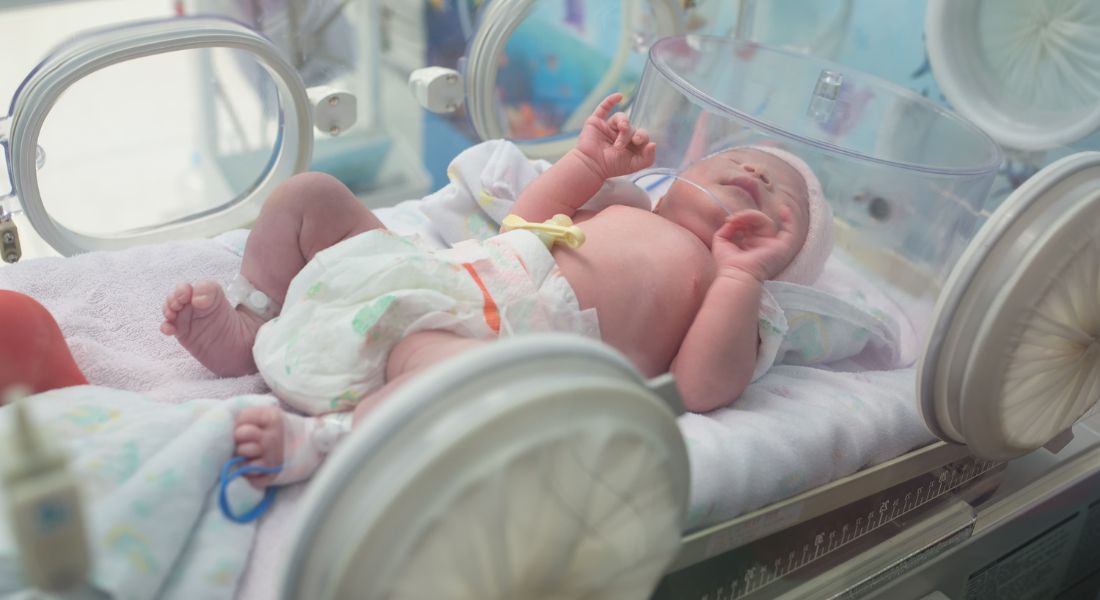Categories
Caring for children in the PICU
Dec 01, 2022
Having your child in the hospital can be stressful, especially if they are admitted to the Pediatric Intensive Care Unit (PICU). It is an overwhelming experience for any parent. However, if you have a basic understanding of what pediatric ICU (PICU) is, you can be better prepared to handle this. At Rainbow Children’s Hospital, our team will help you learn everything there is to know about PICU and your child’s conditions.
We are the best child hospital in Delhi with a dedicated PICU catering to sick children who are in need of the highest level of care. Through it, we are able to provide intensive nursing care to children and monitor things like breathing, heart rate, and blood pressure.
When is your child sent to the PICU? If your child is seriously ill and must get intensive care that couldn’t be met on the main medical floors, then they must be admitted to the PICU. A few examples of this include kids with severe breathing problems, certain heart conditions, complications of diabetes, serious infections, or those involved in near-drowning or other serious accidents. The duration of your child’s stay at the PICU will depend on their condition. Some stay there for a day while others for weeks or even months.
Who will take care of your child in the PICU? At Rainbow Children’s Hospital, we have highly-skilled people working in the PICU as well as Evening OPD who will take care of your child. To ensure that you are not overwhelmed or confused, make sure that you introduce yourself to the staff. You can ask them questions about your child’s condition and treatment. The nurses are experienced in working with the sickest children and will be closely involved in the daily care of your child. Through Rainbow, you will have the best pediatrician in Delhi attending to your child.
What should your child expect in the PICU? The medical equipment attached to your child in the PICU can be alarming. There are a number of machines with display panels and alarms. All the lights and noise can be overwhelming for you and your child. By getting an understanding of these equipment, you can help your child stay calm during their stay:
1. IVs - Your child will have an intravenous catheter (IV) attached to their arms, hands, legs, feet or even scalp for transferring fluids and medications. IV is a thin and flexible tube that is inserted into the vein using a small needle. Once the IV is in the vein, the needle will be removed and the soft plastic tubing will be left behind. In some cases, a larger IV is needed for delivering larger volumes of medicines and fluids. These are inserted into more central and larger veins of the neck, chest, or groin and are called central lines. There are also arterial lines that are similar to IVs. The difference between the two is that the former is placed in the arteries while the latter is placed in the veins. Arterial lines are used for monitoring oxygen levels and blood pressure in the blood. 2. Medications - Your child can take the medicine anywhere in the hospital. However, there are certain medications that might have dangerous side effects. So, it is important that your child is closely monitored while being administered with such medicines. Some of these medicines will be given continuously through several IV drops at a time known as drips. A few examples of these include epinephrine, morphine, and dopamine that help with pain relief, blood pressure, or heart function. 3. Monitors - Your kid will be attached to a monitor through chest leads (painless stickers that are connected to the wires). These leads count your child’s breathing rate and heart rate. In some cases, your child will also be connected to a pulse-oximetry machine that checks oxygen levels in the blood. To monitor blood pressure, your child will either have a blood pressure cuff or have an arterial catheter. 4. Tests - To get more information about your child’s condition, the doctor will order tests like urine tests and blood tests. In some cases, your child will also have a Cerebrospinal Fluid (CSF) test. Imaging tests are also very common including ultrasound, computed tomography, X-ray, and magnetic resonance imaging. 5. Ventilator - If your child needs some help with breathing, he/she will be able to get that extra oxygen through tubing in the nose or a face mask. However, in some cases, your child will be connected to a breathing machine or a ventilator. Your child will receive pain relief medicines or sedatives while the tube is in their windpipe.
When your child is admitted to the PICU at the Rainbow Children’s Hospital,our staff will take care of all the physical needs of your child. As a parent, it is your responsibility to provide your child with love, emotional support, and familiar touch. However, you don’t have to stay by your child’s side 24x7. It is important that you get away from the PICU every once in a while to get some fresh air. Remember that we are there at every step of the way to support you.







